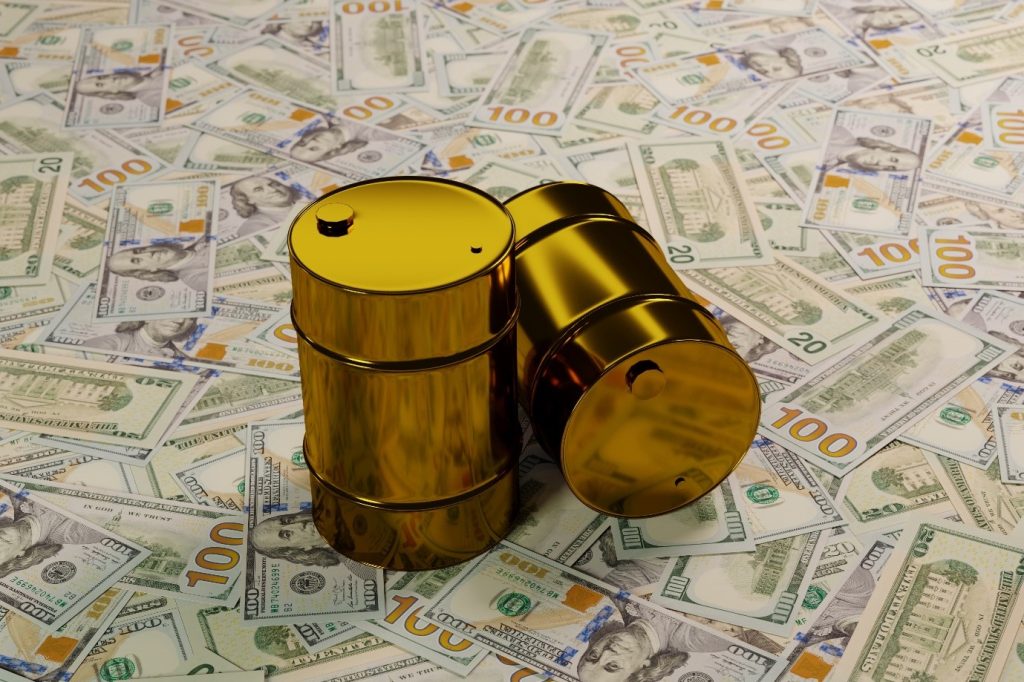Two of the most actively traded financial instruments are currencies and commodities, since these markets provide traders with opportune conditions to make gains on their investments.
Financial markets are inherently volatile and this causes the prices of assets to fluctuate. Traders can take advantage of this volatility by opening or closing a position according to the climate of the market, in an attempt to profit.
Of course, just as there are opportunities to make gains, there is also the risk of making losses on your investment. But, a developed understanding of the market and a well-conceived strategy will help you to protect your capital.
In order to better cope with abrupt price movements in the financial market, it can be helpful to diversify your portfolio, as different instruments will cope better than others during periods of financial uncertainty.
If you’re considering opening positions in both forex and commodities markets, you’ll need to know the main differences between the two, to best prepare yourself for investment.
Read on to find out more.
The similarities between forex and commodities
Before we look at the differences between forex and commodities trading, we’ll first take a look at their similarities. Firstly, both currencies and commodities are traded on the futures market, which is an auction market that oversees the buying and selling of futures contracts, and confirms their delivery for a date in the future. This enables consumers and producers to limit the risk of losing their capital, since currency and commodities prices can change dramatically in a small space of time.
Additionally, you can use a contract for difference (CFD) to trade in currencies and commodities. When you trade using CFDs you will trade on the value of a contract that you establish with a broker, rather than owning the asset itself. Using an online CFD platform like Skilling, for instance, you can trade in some of the world’s most actively traded currency pairs like the US dollar against the euro (USD/EUR), as well as the most popular commodities like oil, without owning those underlying assets.
Now that you understand some of the similarities between these financial instruments, let’s move on to the differences.
The differences between forex and commodities
Of course, the main difference between the forex and commodities market is the securities that you will trade in.
The forex market involves the trade of the world’s currencies, like the dollar, the pound and the euro, and these are traded in pairs, known as currency pairs. This means that the value of a currency can be determined by directly comparing it against another.
On the other hand, the commodities market will enable you to trade in goods that naturally occur in the ground or can be harvested. This includes coffee, oil and iron, for example, and these assets are divided into two categories — hard and soft commodities.
Here’s a list of the less obvious differences that will affect the way you trade in these two securities:
Exchange limits
Currencies are traded over-the-counter (OTC), which means that you’ll use a broker when investing in forex. Commodities, on the other hand, are traded on an exchange and this means that you’ll purchase a share of the asset when you open a position in the market. When trading on the exchange, your investment will be impacted by daily range limits and once you have exceeded these, you can’t open any new positions until the next day.
Regulations
When you trade in one of the financial markets, you’ll need to be aware of the specific regulations that apply. The strictness of these regulations can differ from market to market. For example, the rules that apply in the forex market are fairly loose in comparison to those of the commodity market. Because of this, it’s vital that you research the rules and regulations that could affect your trades before you invest, to avoid being caught out by any unexpected fine print.
Leverage
Since you can trade in currencies using an investment broker, you’ll be able to apply leverage to your trades in order to acquire greater exposure to the market. Leverage enables you to deposit a portion of the value of the whole trade and borrow the remainder of its value from a broker. This means that you could acquire a far larger position in the market than you would have been able to afford, using your capital alone.
Whilst you can also use leverage in the commodities market, when trading in commodities CFDs for example, you won’t be able to acquire as much exposure as you would in the forex market. This is due to the fact that exchange limits are imposed on commodities.
—
You may now be faced with the decision of which market you want to invest your capital in. However, as we previously mentioned, one of the best ways to invest your capital is to spread it across different financial markets, to hedge your investments against one another.
So, why not invest in both forex and commodities, making your capital do more for you so that you can reach your financial goals.

